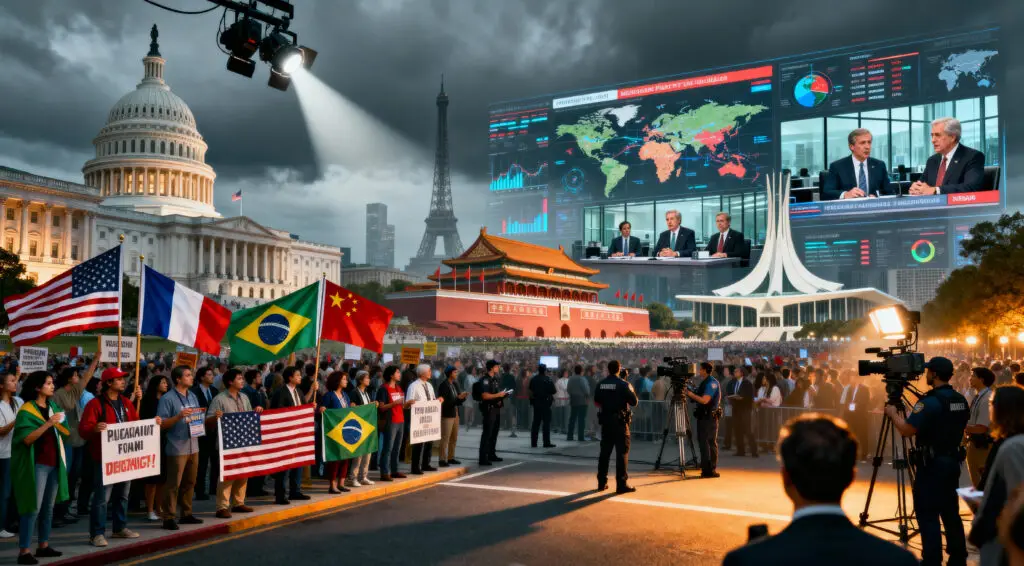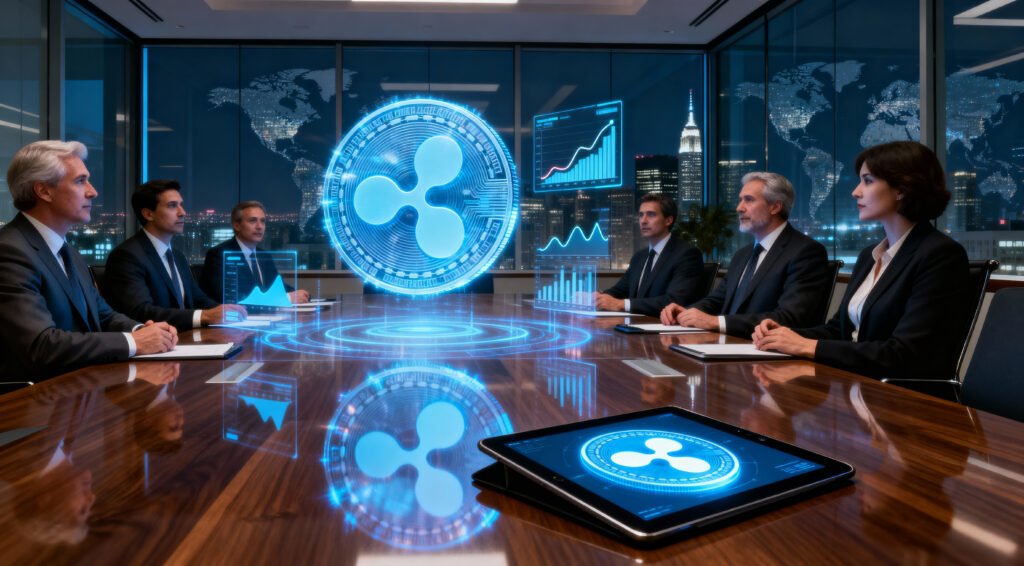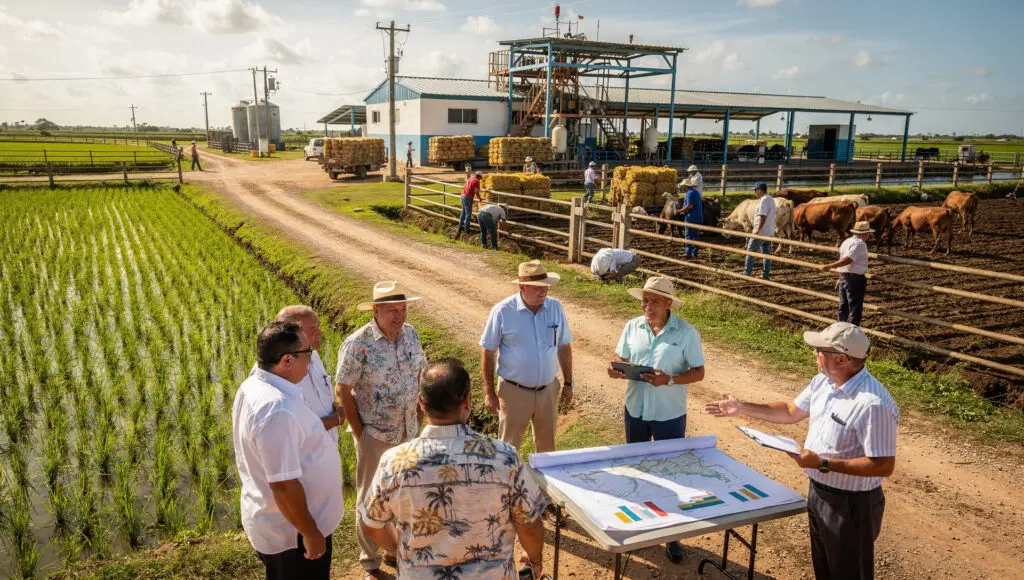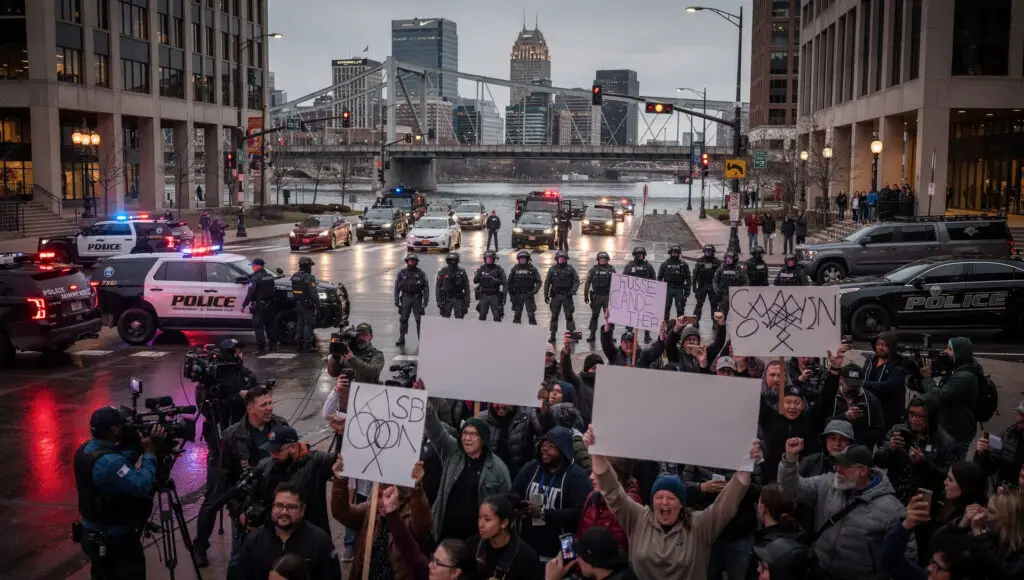Political Instability Escalates Across Major Economies
Global politics in 2025 has entered a volatile phase marked by leadership disputes, populist movements, and institutional gridlock. Governments across Europe, Asia, and Latin America are grappling with internal divisions that threaten policy continuity.
Economic strain from inflation and trade conflicts further fuels public discontent and political polarisation. Analysts warn that the erosion of trust in traditional parties may reshape electoral outcomes in upcoming national polls. As divisions widen, maintaining political stability has become a pressing challenge for leaders worldwide.
Populism Gains Ground Amid Economic Discontent
Economic inequality and rising living costs continue to drive support for populist movements globally. Citizens frustrated by stagnant wages and widening wealth gaps are increasingly rallying behind leaders promising economic nationalism.
These movements often exploit distrust in established institutions, amplifying social fragmentation and ideological extremism. From Europe’s far-right resurgence to Latin America’s populist revivals, populism is redefining political discourse. Policymakers now face the challenge of balancing populist demands with the realities of fiscal responsibility and international cooperation.
Leadership Transitions Test Governance Stability
Frequent leadership changes in multiple countries have raised concerns about policy instability and governance fatigue. In nations such as France, Japan, and Peru, successive resignations have weakened administrative continuity and investor confidence. Political analysts note that coalition governments struggle to maintain consensus amid shifting alliances and growing public pressure.
These transitions often delay critical reforms, especially in economic recovery and climate adaptation policies. The resulting uncertainty underscores the need for transparent governance and institutional resilience to rebuild political credibility.
Recommended Article: Israel Approves Gaza Ceasefire Deal As US Deploys Monitoring Troops
Economic Policy Debates Intensify Across Regions
Fiscal policy has become a battleground for competing political ideologies in 2025. Left-leaning administrations advocate social spending and wealth redistribution, while conservatives push for austerity and market liberalisation.
Central banks face mounting political pressure to balance inflation control with employment protection. The debate over digital currencies and financial regulation also divides policymakers. As nations pursue divergent strategies, global coordination on trade, taxation, and climate funding becomes increasingly fragmented.
Geopolitical Alliances Shift Amid Security Tensions
Strategic realignments are reshaping global alliances as nations adapt to evolving security and trade interests. The United States and its allies are strengthening Indo-Pacific partnerships to counterbalance China’s growing influence. Meanwhile, regional powers like India and Brazil are asserting greater autonomy through non-aligned diplomacy.
Military spending and cyber-defence budgets have surged worldwide as governments prepare for hybrid threats. These geopolitical shifts reflect a transition from unipolar dominance to a more multipolar and competitive world order.
Public Protests Highlight Democratic Fatigue
Mass demonstrations have become a defining feature of global politics, reflecting frustration with inequality, corruption, and declining civic trust. Citizens in multiple countries are demanding electoral reform, transparent governance, and stronger social safety nets. While many protests remain peaceful, some have escalated into violent clashes with security forces.
Governments face growing pressure to address systemic grievances without undermining democratic freedoms. The persistence of protest movements signals deeper disillusionment with conventional politics and leadership accountability.
Global Cooperation Faces Mounting Obstacles
International institutions such as the United Nations and World Trade Organization face challenges in mediating between competing national interests. Disagreements over climate financing, migration policies, and digital governance have stalled global negotiations. Regional blocs attempt to fill the gap through targeted trade and security agreements. However, without renewed multilateral cooperation, progress on global crises remains limited. Political observers stress that rebuilding trust among nations is essential to restoring stability and collective problem-solving.























